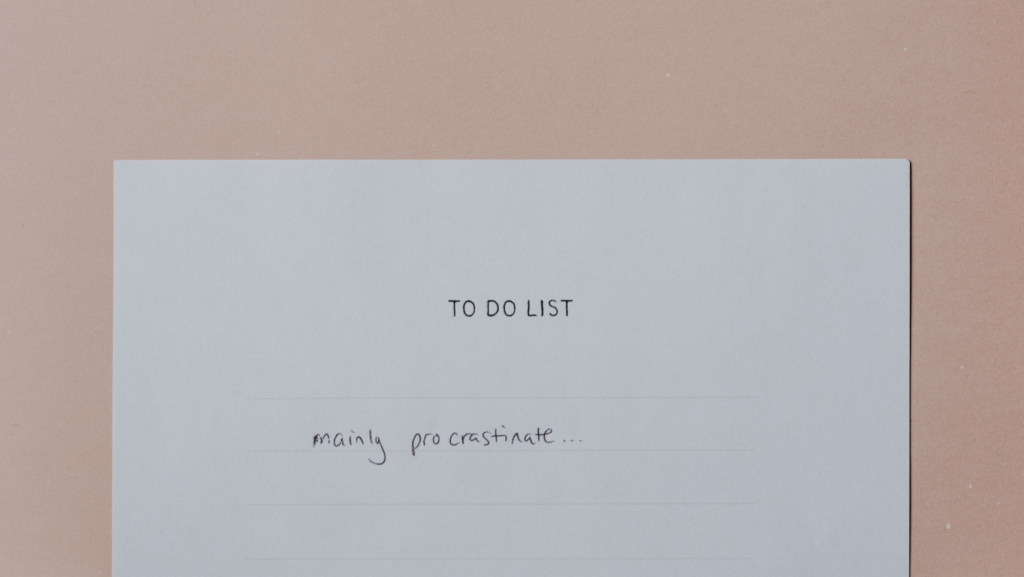Do you have moments when you feel like you just can’t work or even leave the bed? Or do you always feel tired and unmotivated to start a new day? Chances are you might have signs of laziness.
Acknowledging its presence in our lives can be disheartening; however, think of it as a necessary step towards self-improvement, both in terms of accepting oneself and becoming a better person.
In this article, we will take a closer look at ten signs of laziness that you should be aware of. So, let’s get started!

10 Signs of laziness to be aware of
1. You find yourself bored a lot
Boredom is when you feel restless for action but nothing compels you.
Often that happens when you are lazy to push yourself and give something a try. Maybe you feel uninspired to take actions, but if it is the inspiration you are waiting for, you’ll be waiting forever.
Everything needs a start, a spark, an ignition before it can move forward. So the key is to get off the couch and take real action, even if you don't feel inspired.
Boredom is often a mask for laziness, fear, and indecisiveness. If you find yourself feeling bored often, it might be worth digging deeper and acknowledging the role of laziness in your life.
2. You are just getting by
Being content with mediocrity is a tell-tale sign of laziness. When you only do the bare minimum in everything and rush to finish tasks for the sake of ticking a check mark, you’re taking the easy way out.
Life is not about getting things done. It isn’t about reaching the finish line or achieving a particular goal. Instead, life is made up of all the small, everyday things we do.
It’s about fully immersing ourselves in the process of each task, no matter how small or seemingly insignificant it is.

Life blooms when we dedicate ourselves to making something great out of something that initially appeared trivial. It's about taking joy in the journey, rather than focusing solely on the destination. That's when life truly shines.
Being lazy and skipping certain parts of our existence just because they seem boring, tedious or unimportant is a sure-fire way to miss out on the beauty of life.
3. You find yourself making too many excuses
It’s widely accepted that actions speak louder than words. You can talk the talk, but without the walk, words become obsolete.
Excuses are similarly ineffective. They serve as a façade of justification, concealing our decision not to take action. Ultimately, we’re the ones responsible for our inaction, and excuses only exacerbate the issue.
Rather than admitting that we’re too lazy to go to the gym, we come up with a litany of excuses. It’s an easy way out, but it doesn’t change the fact that we’re not taking action.
When making excuses becomes a habit, you become trapped in a cycle of inactivity and stagnation. It is one of the signs of laziness indeed!
4. Your house (car, workspace) is a mess
Leaving a mess behind signals a lack of care and effort to maintain order in our lives. The reason you don’t have time to organize or tidy up isn’t because the clock isn’t on your side. Rather, it’s because you made it a habit. In other words, you conditioned yourself into laziness.
Mess in our living or working space signifies only one thing: chronic laziness turned into a habit and took over.
Ultimately, this kind of behavior can begin to affect the overall trajectory of our lives in a negative way. Disorganization can lead to greater stress and anxiety, which can in turn impair our ability to stay clear about our goals and priorities.
5. You have no set goals for the future
If you ever found yourself content with the way things are and not really bothering with setting any goals for the future, I am NOT judging you.
Indeed, it’s only natural for our instincts to associate stability with safety, and it’s certainly easier to just stay in our comfort zones than to take any risks. In other words, there is nothing wrong with it. In an animal world.
Only that as humans, in addition to instincts we are gifted with a complex brain and consciousness, which means we have a natural drive to seek self-actualization and accomplishment.
Without setting any goals, you risk falling into complacency and never truly achieving your full potential.
Allowing laziness to guide you is an easy route. But it comes with a price: life becomes extremely monotonous and dull, with you starting to question your existence and developing unexplainable health issues like random anxieties, weird episodes of depression, and panic attacks.

That being said, if you find yourself drifting in life without any intent or sense of direction, that means that you are choosing laziness instead of taking charge of your life and taking action. And deep down you know that such a lifestyle is not satisfactory and you sort of wasting precious time.
6. You eat mindlessly a lot of junk food, especially in the evenings
Munching on junk food mindlessly during the evenings and weekends is a common habit for many of us. Usually, it is when we have free time, but don’t always know what to do with it.
Instead of engaging in exciting or productive activities like picking up a new hobby, going to the gym, or going for a run, we tend to choose the easy way out and indulge in food. Very soon eating becomes a time-passing activity for us.
This habit is created out of our laziness to seek more meaningful and fulfilling pursuits in our lives. A conscious effort is required to engage in novelty, but only takes some laziness for mindless eating.
Next time you find yourself mindlessly munching on some unhealthy snacks, ask yourself: Am I just being too lazy to come up with something more satisfying and thrilling?
7. You are consistently putting things off

Procrastination isn’t about avoiding work altogether, it’s about putting it off until the last possible moment.
For example, you might be working on a project for weeks and then when it comes to doing the final edit, you keep pushing it off until the last minute instead of just getting it over with. If this is happening more often than not, then it could be a sign of laziness.
Another example might be that you are consistently putting off mundane tasks like doing laundry or cleaning the house. These types of tasks seem to continuously get put on the back burner and you never seem to truly complete them.
Repeatedly putting things off can lead to procrastination becoming a habit, a behavior that essentially cheats us out of the chance to be productive and achieve things.
8. You spend too much time either scrolling social media or binge watching tv shows

Laziness likes simplicity and the absence of commitment.
Indeed it does. And wasting time on a device, especially surfing social media is the number one equal to that in the modern world.
It is indeed the path of least resistance and takes zero effort. When taking on new hobbies or being productive requires much bigger actions that are incomparable with the seductive ease of mindful scrolling and watching.
But in the end are they as satisfying as tangible, real-life achievements? I doubt that.
9. You start skipping certain parts of your life that you used to enjoy
Have you ever noticed that you’re starting to skip certain parts of your life that you used to enjoy, like getting together with your friends? It can be one of the early signs of laziness – especially when it comes to socializing.
Maintaining social connections requires consistent effort. It entails reaching out to your friends and making the time to get together to catch up and have fun.
But when you start to feel lazy, you might find yourself avoiding making those efforts. It’s important to recognize these patterns and push yourself to stay engaged with the people that matter most to you, even when you don’t feel like it.
10. You constantly out of energy
Energy is an incredibly fascinating concept – it cannot be created or destroyed, only transferred or transformed. If we constantly feel out of energy, it may not necessarily mean that we are doing too much in our daily life, but actually quite the opposite.
When we sit around or move at a sluggish pace, it is easy to become lethargic and drained. While being busy or engaging in physical activity on the opposite, can actually boost our energy levels.
Therefore, if you find yourself frequently complaining about low energy levels, it may be one of the signs of laziness and have fallen into a rut of inactivity, trapping your energy in stagnation.





